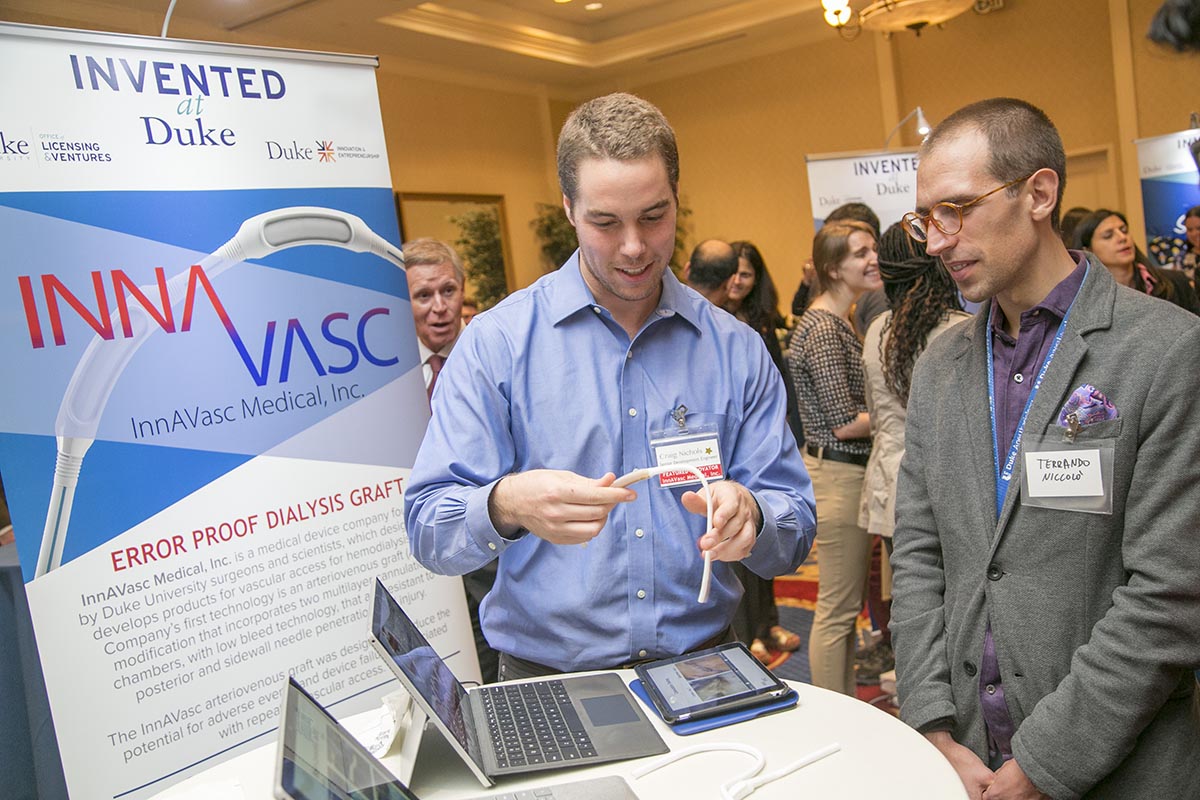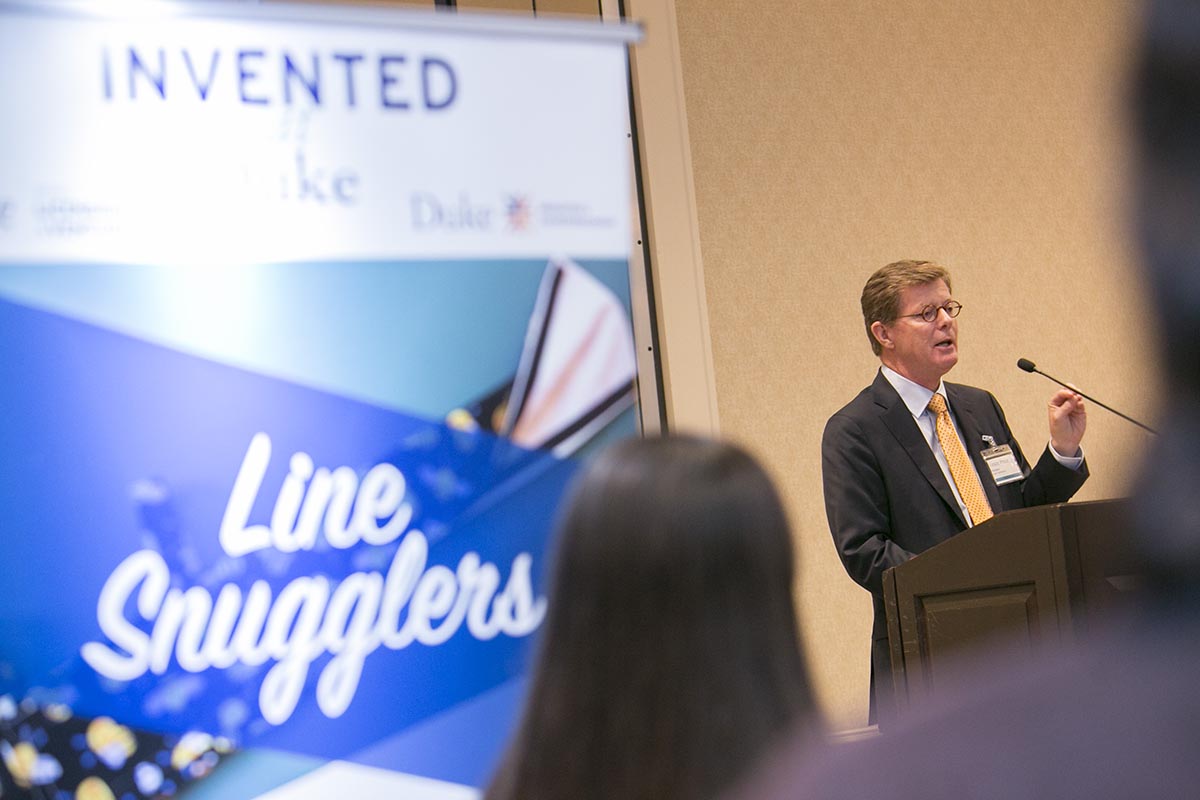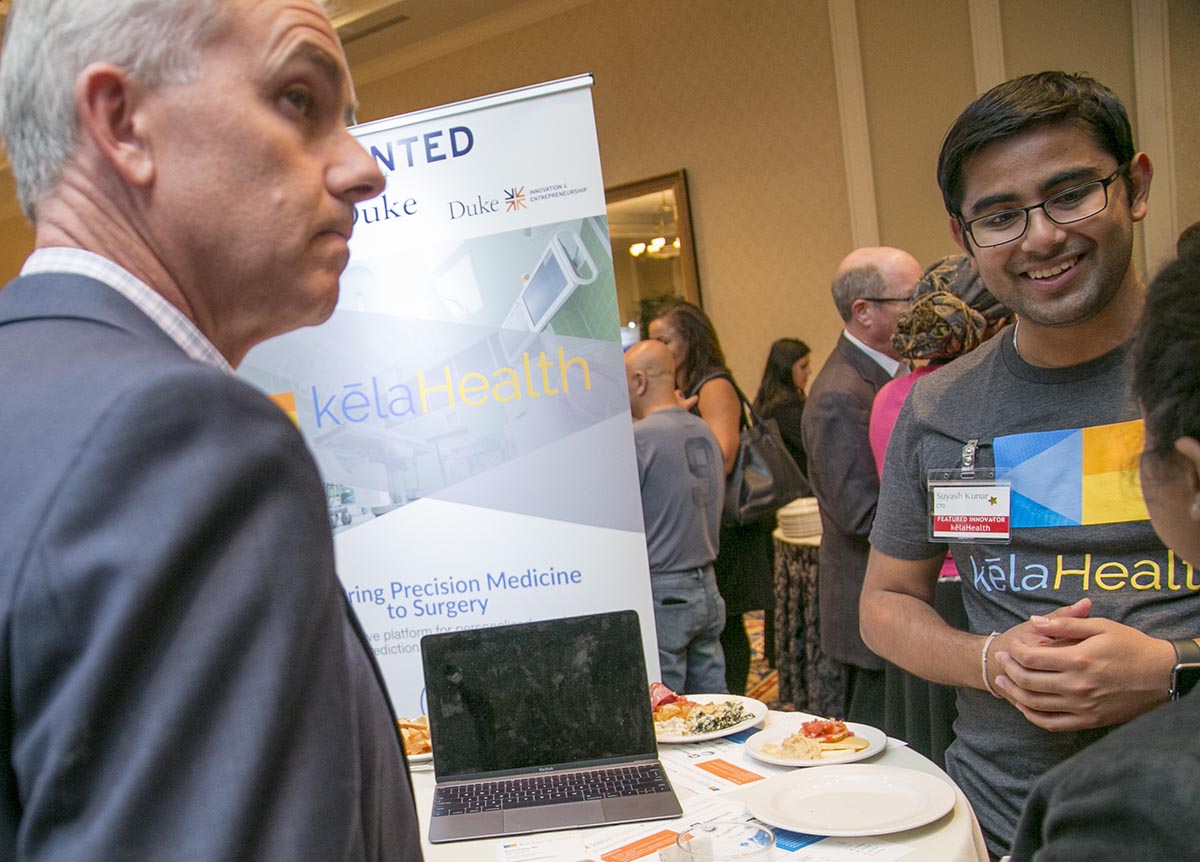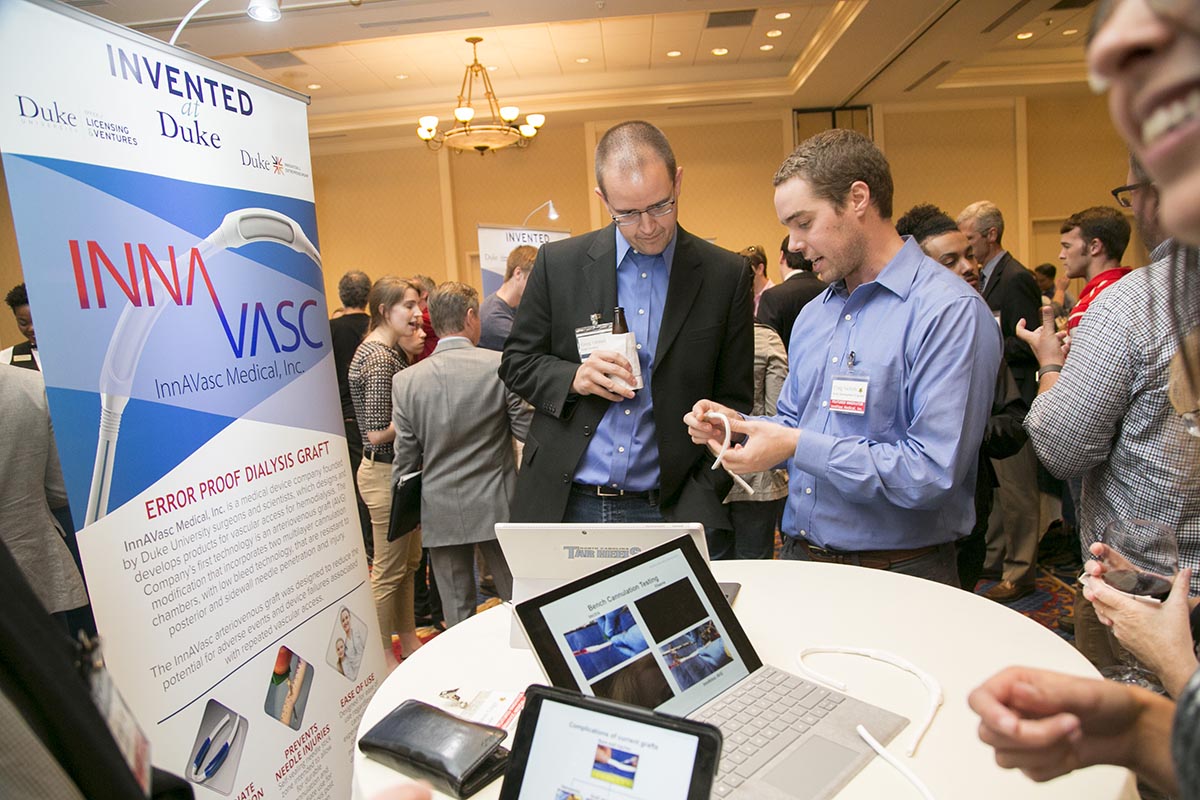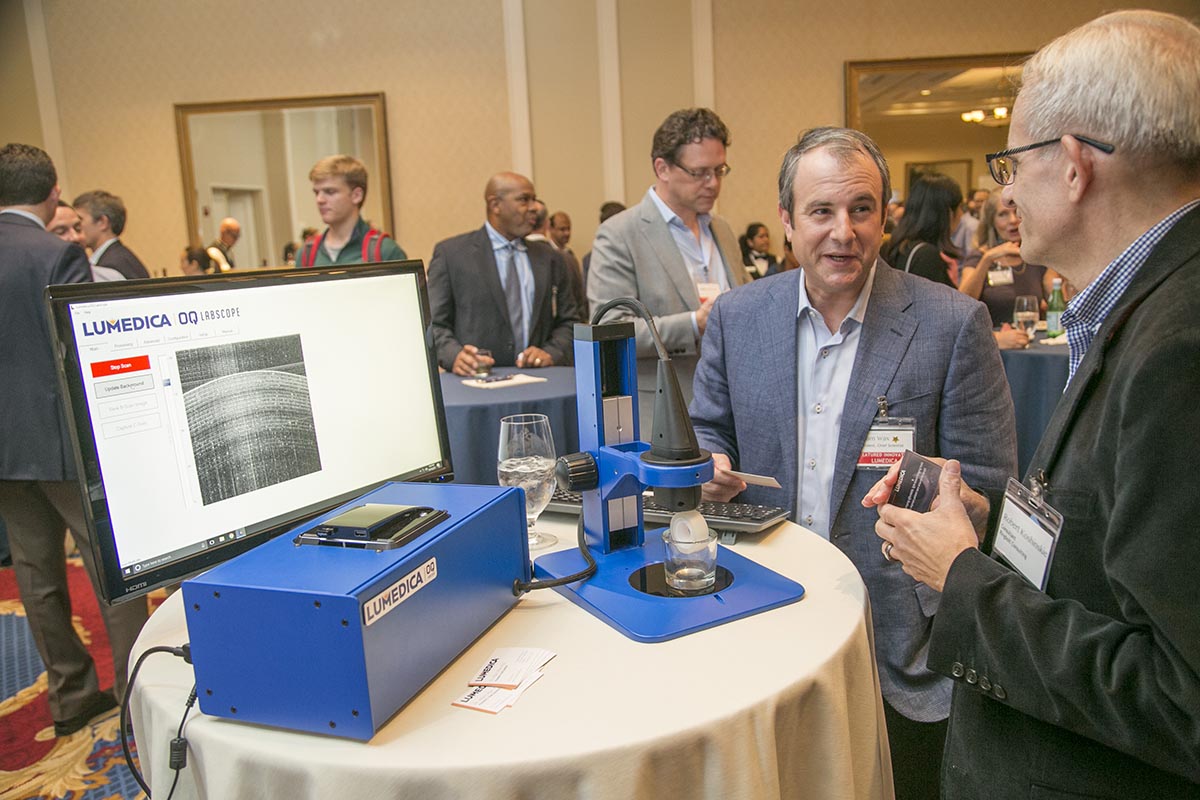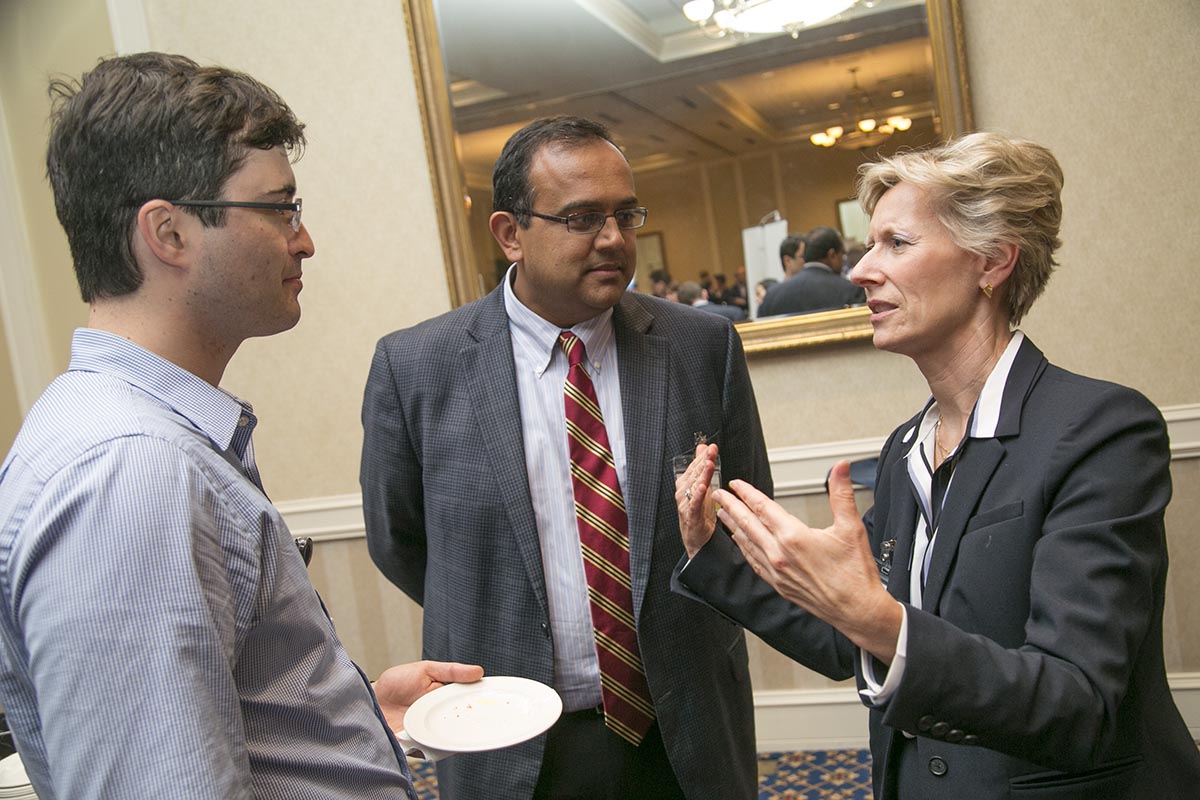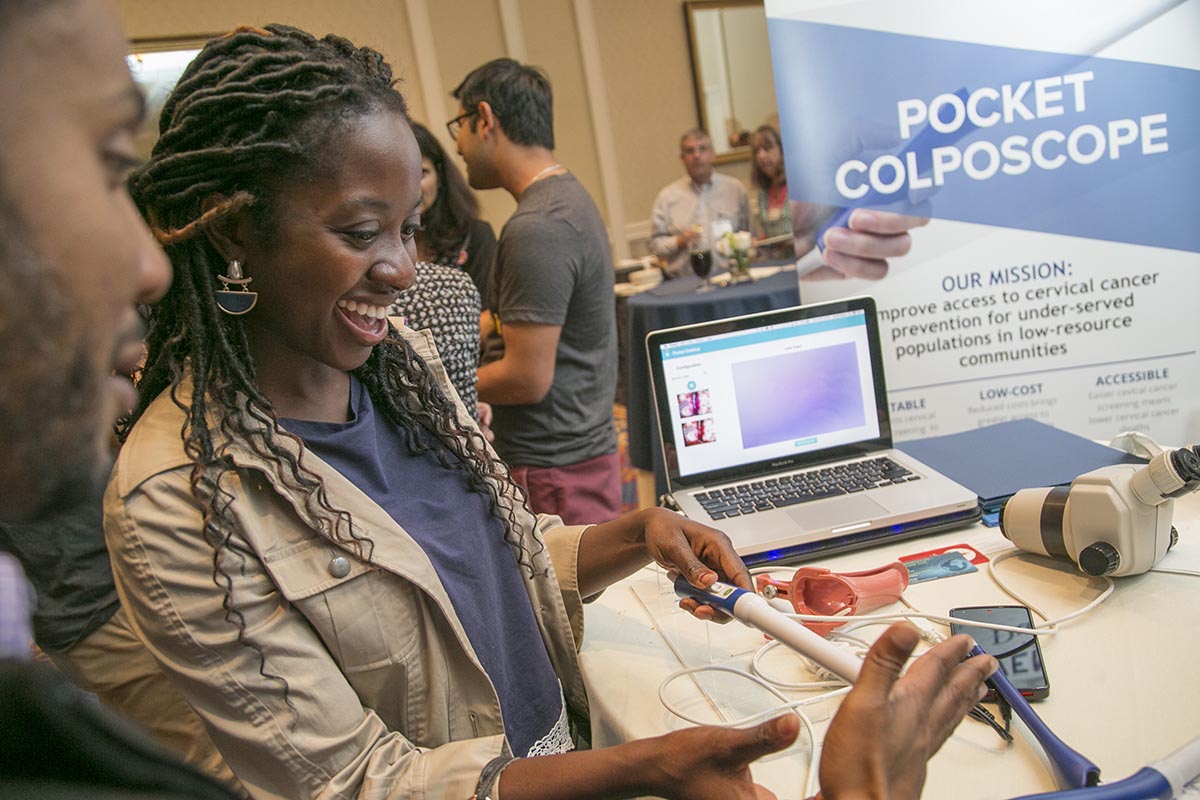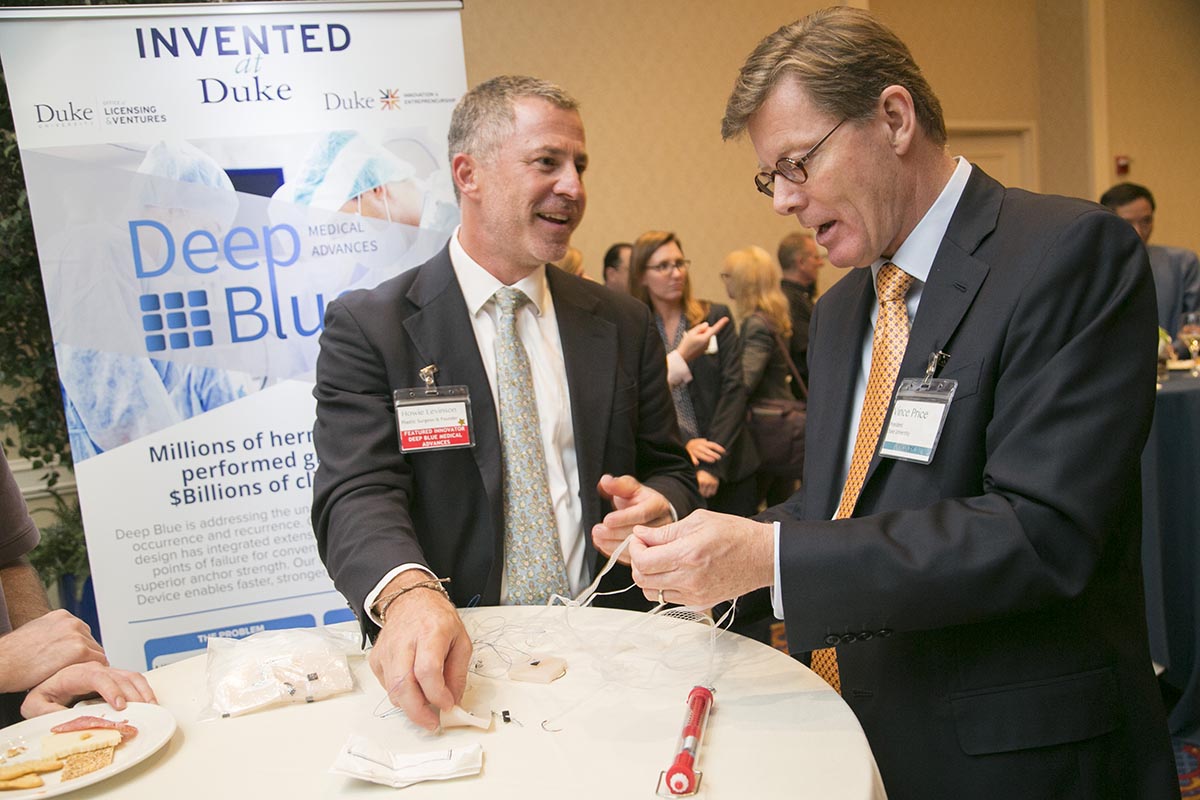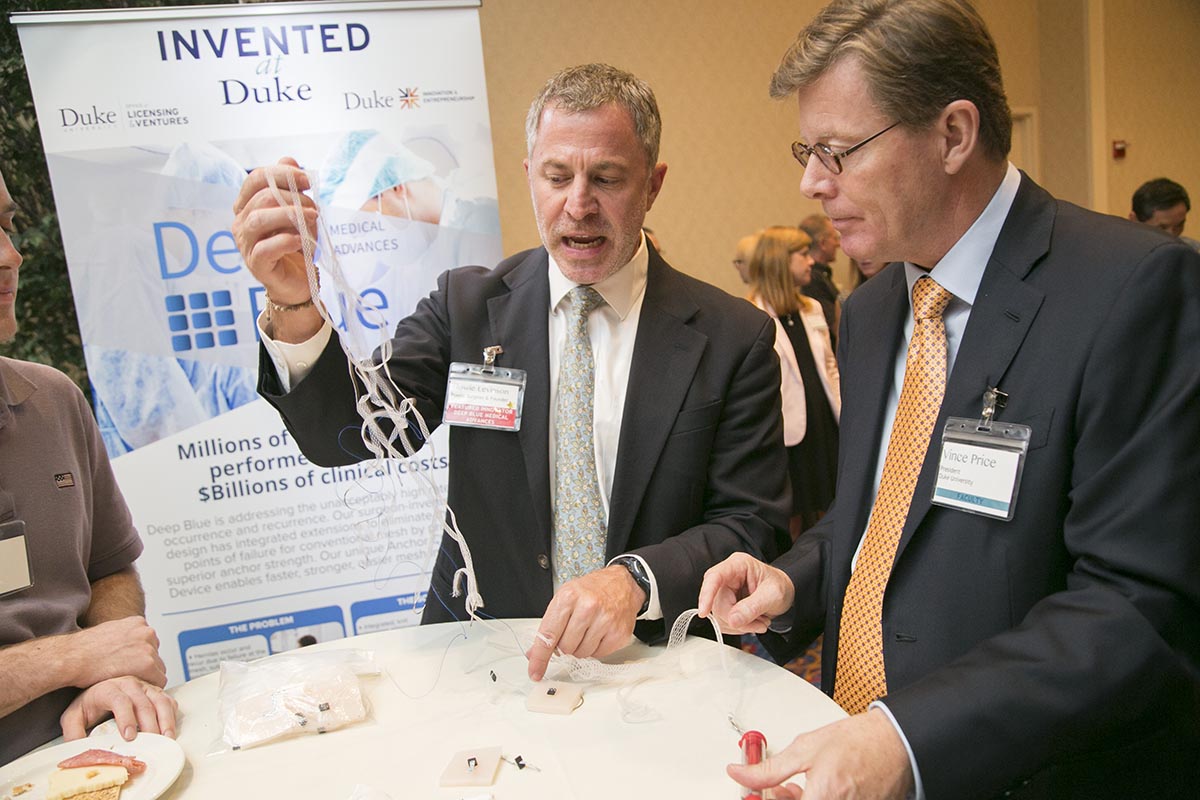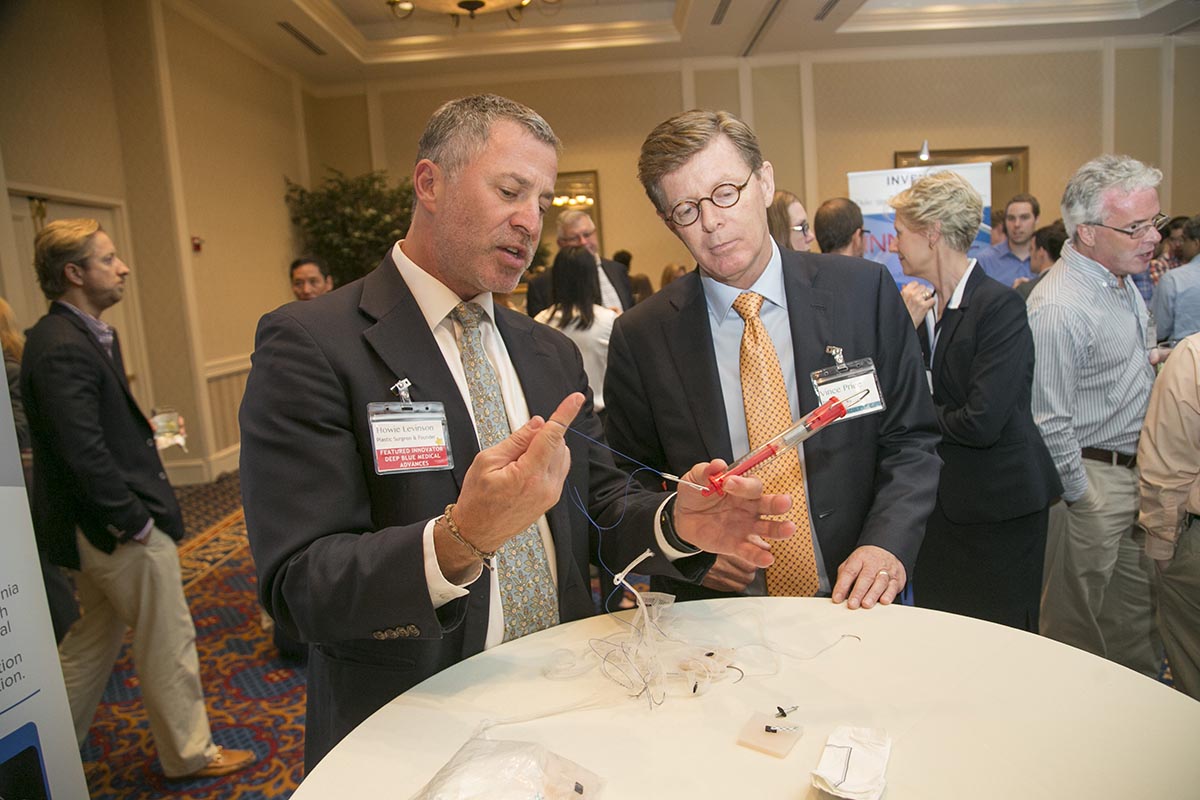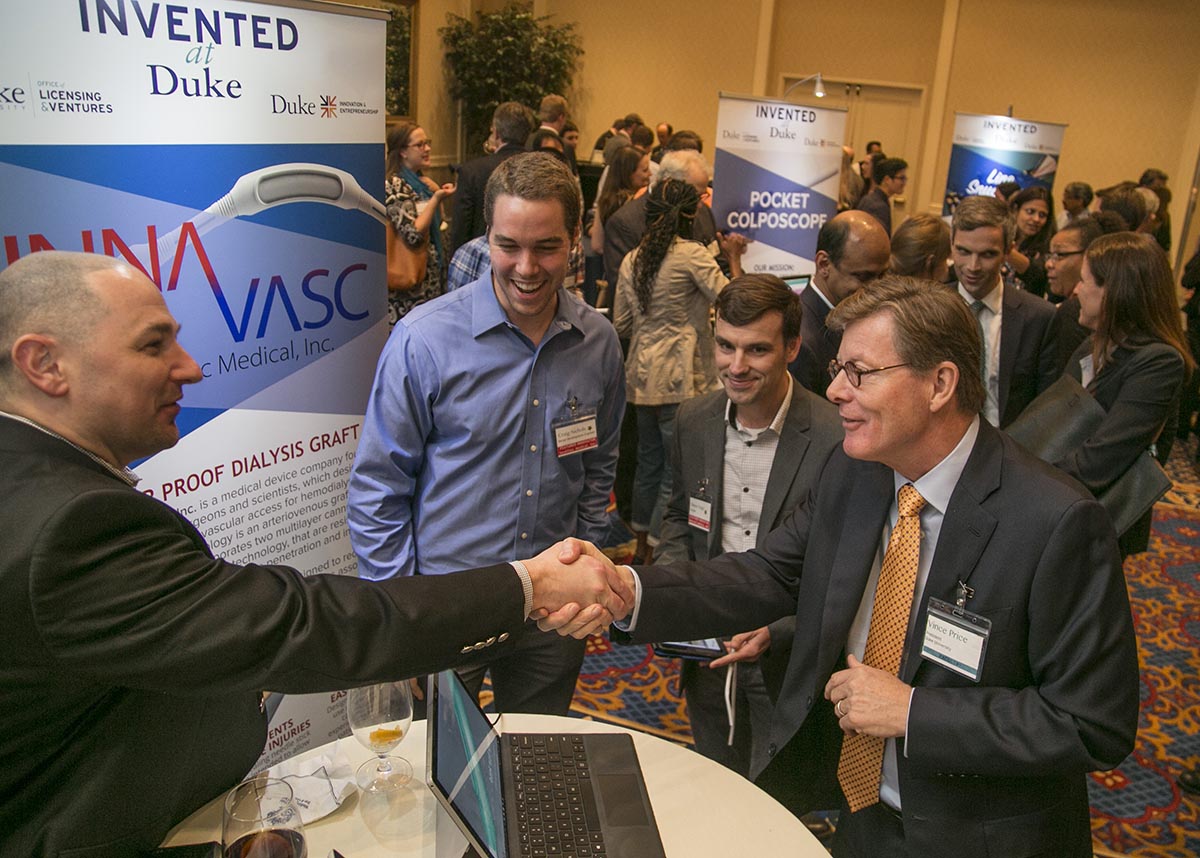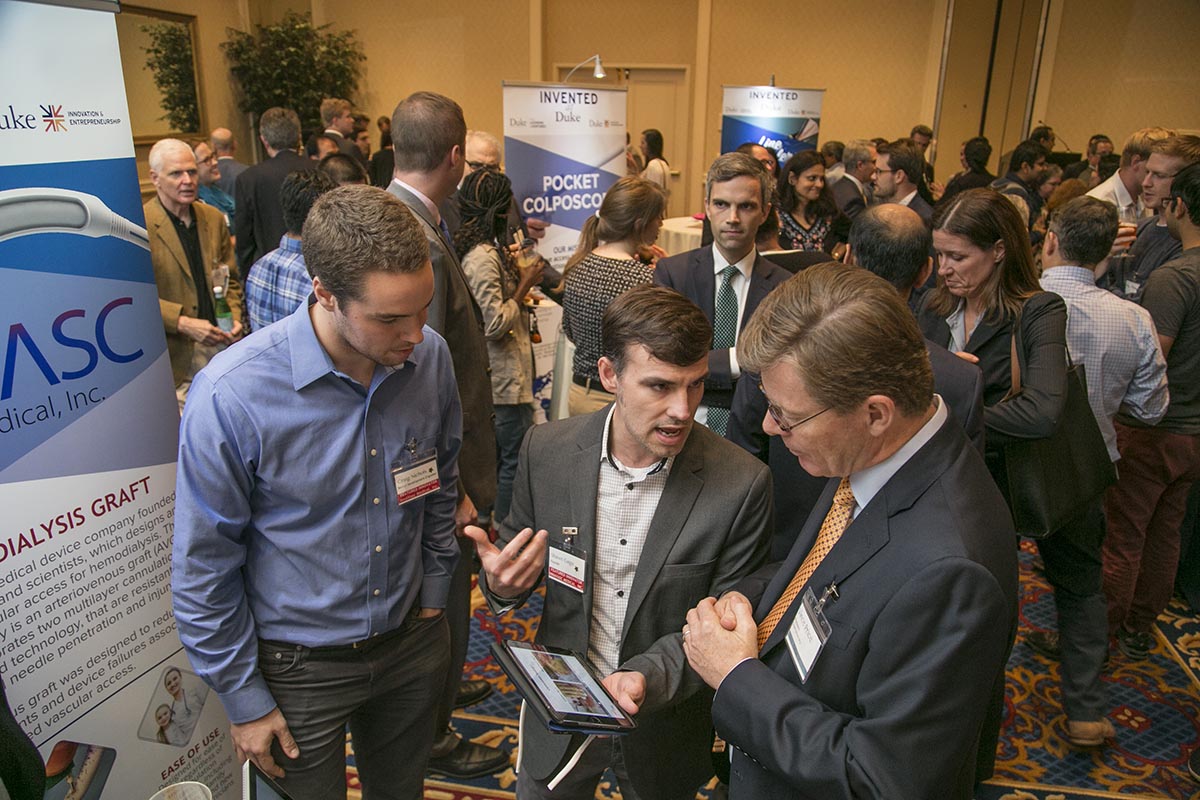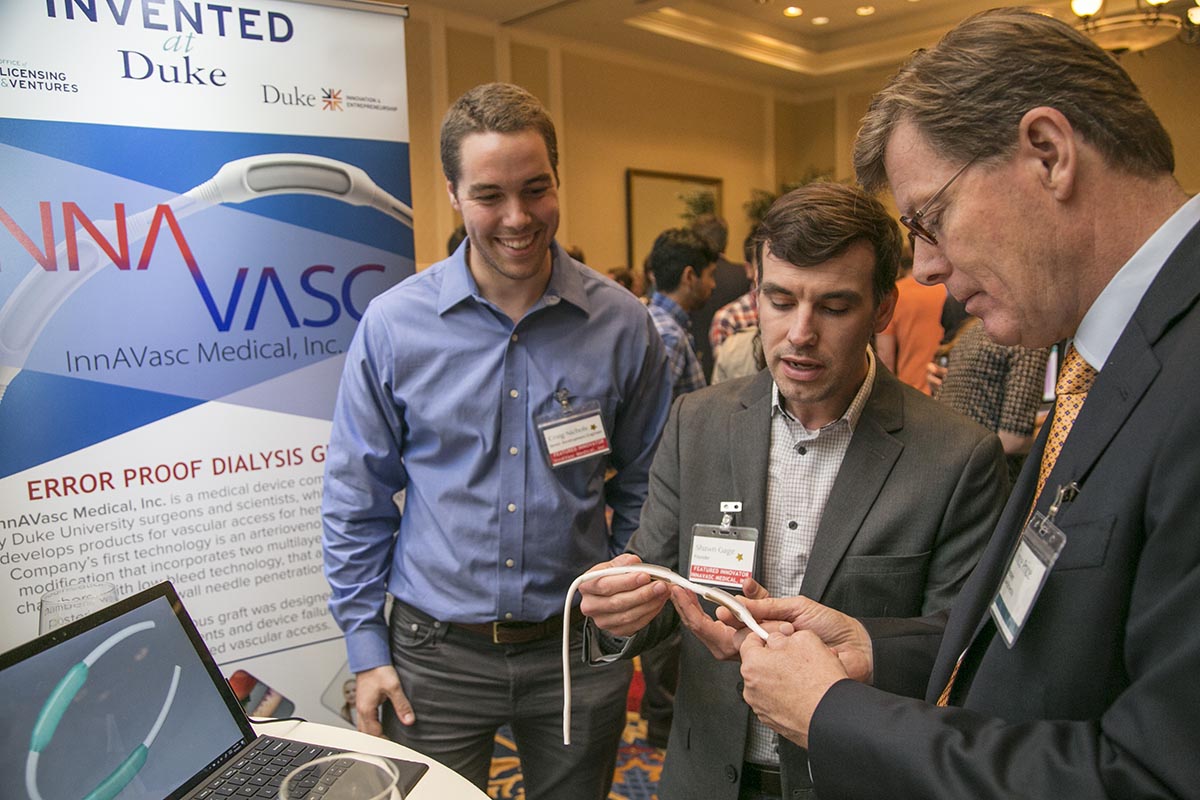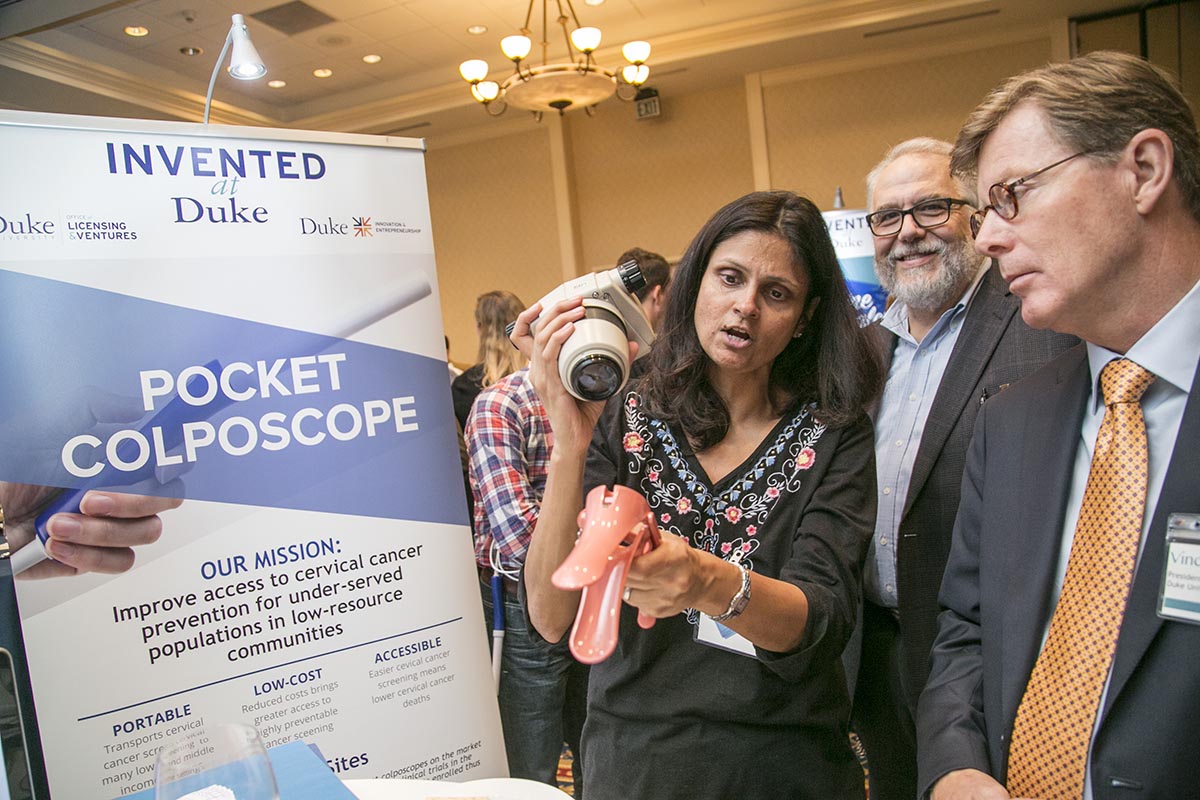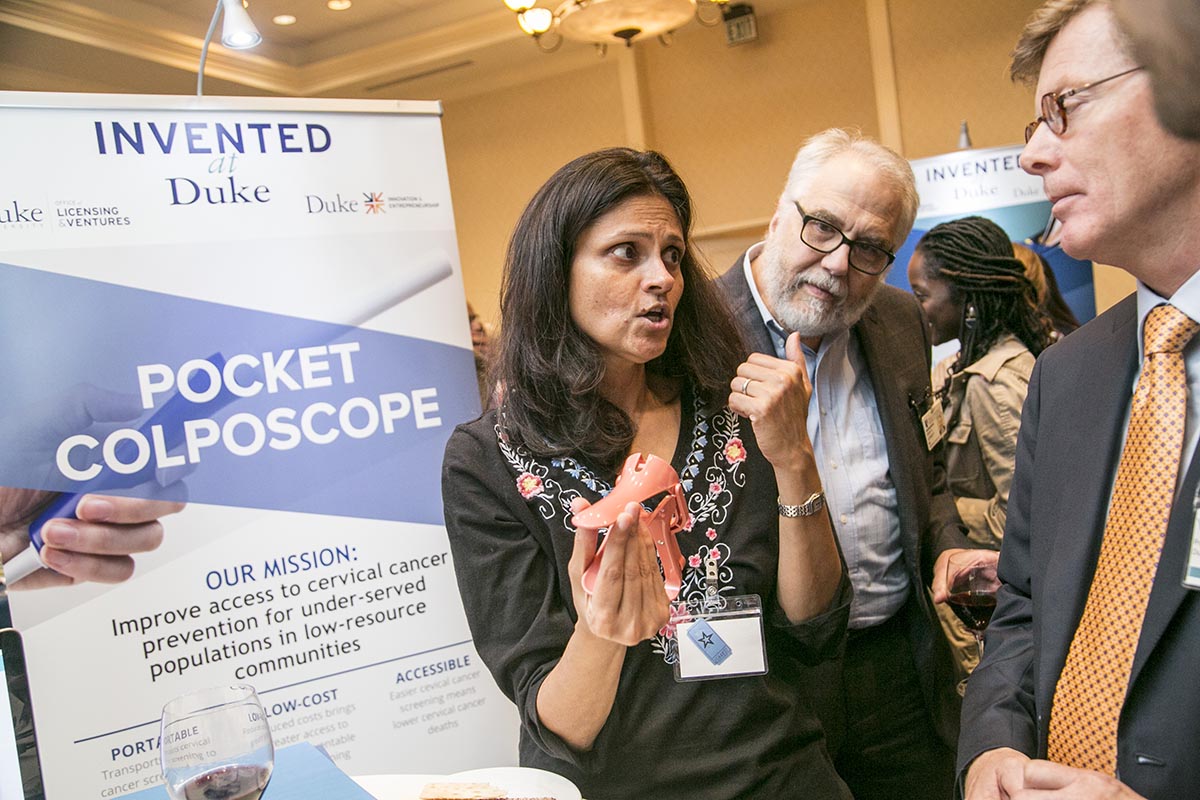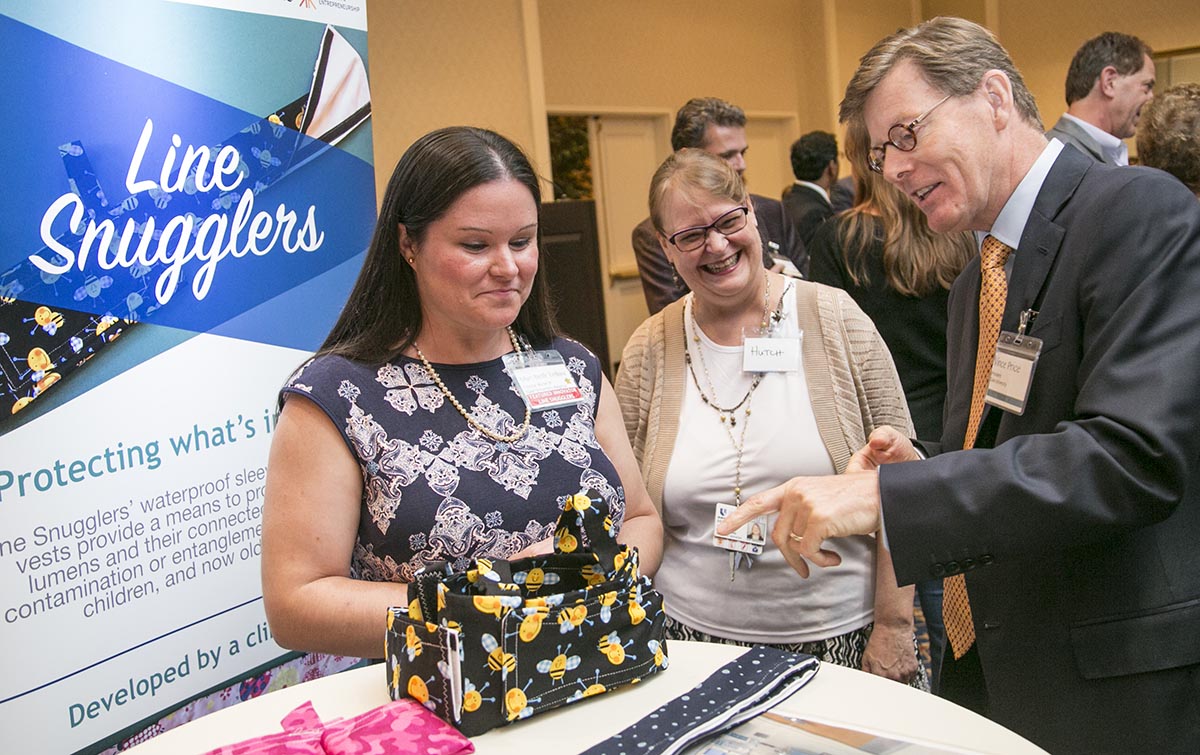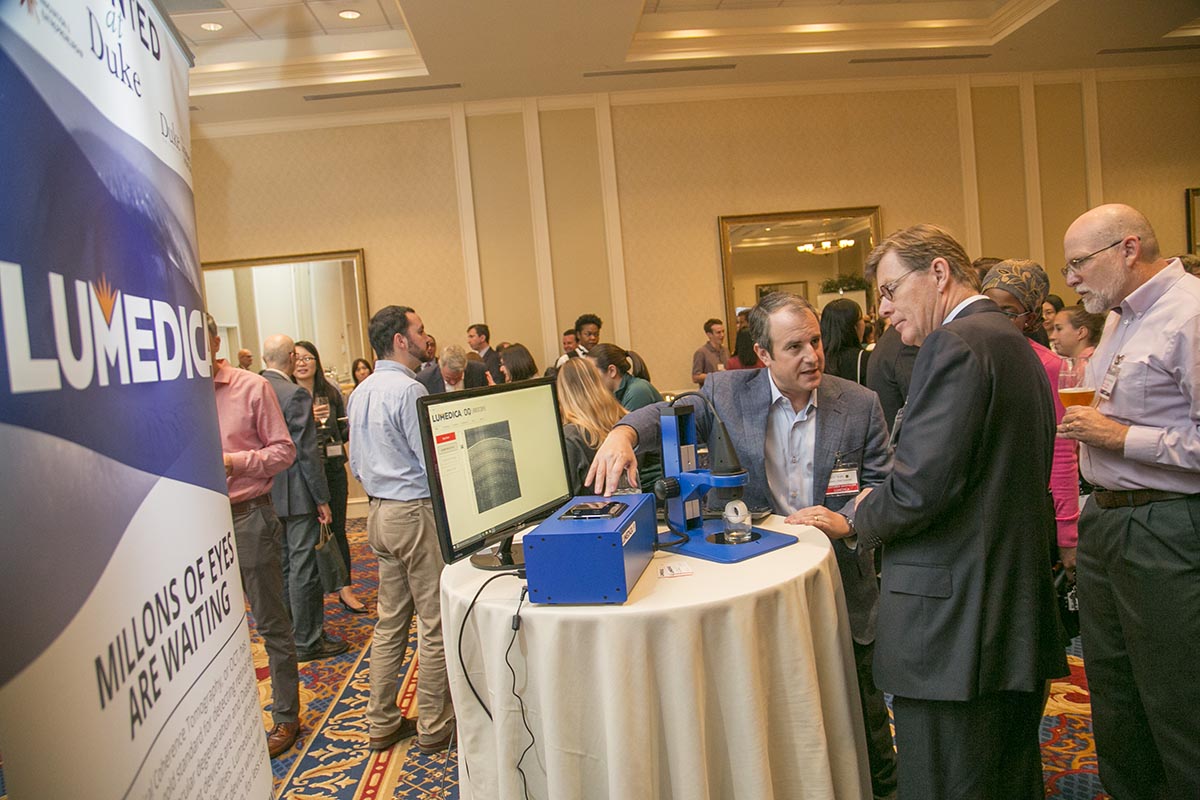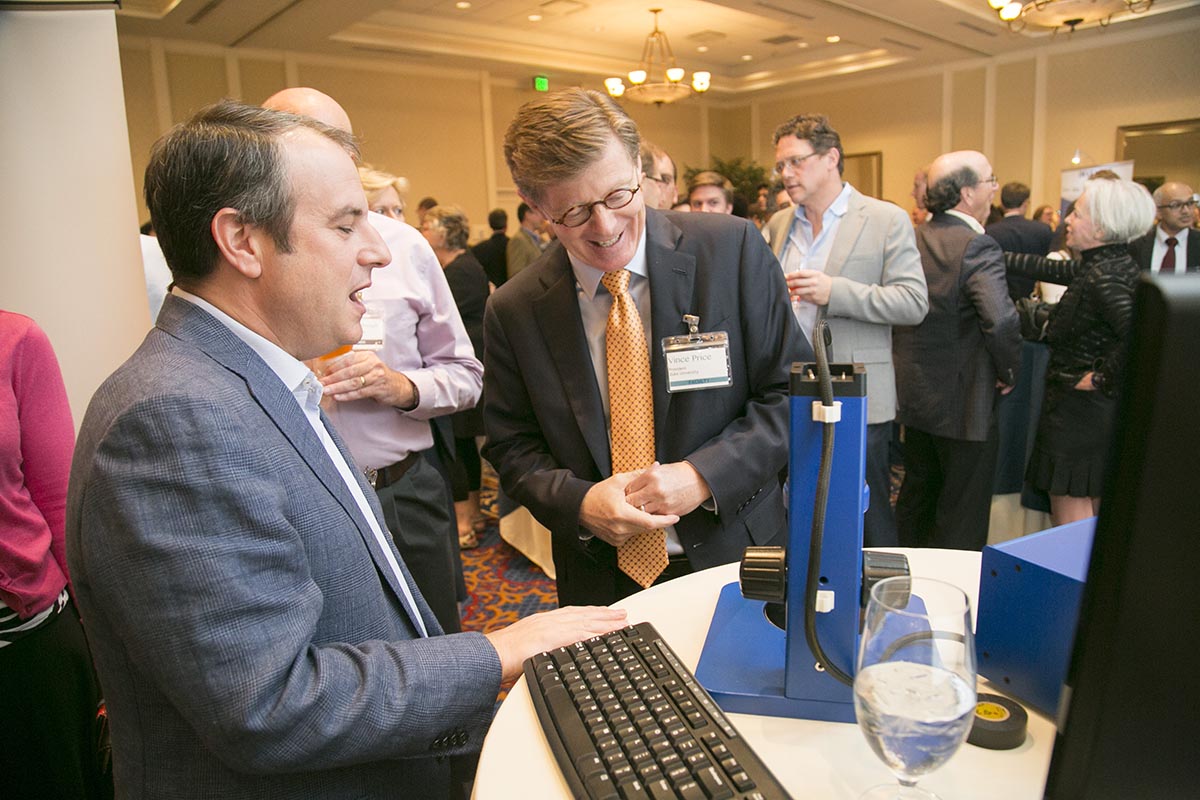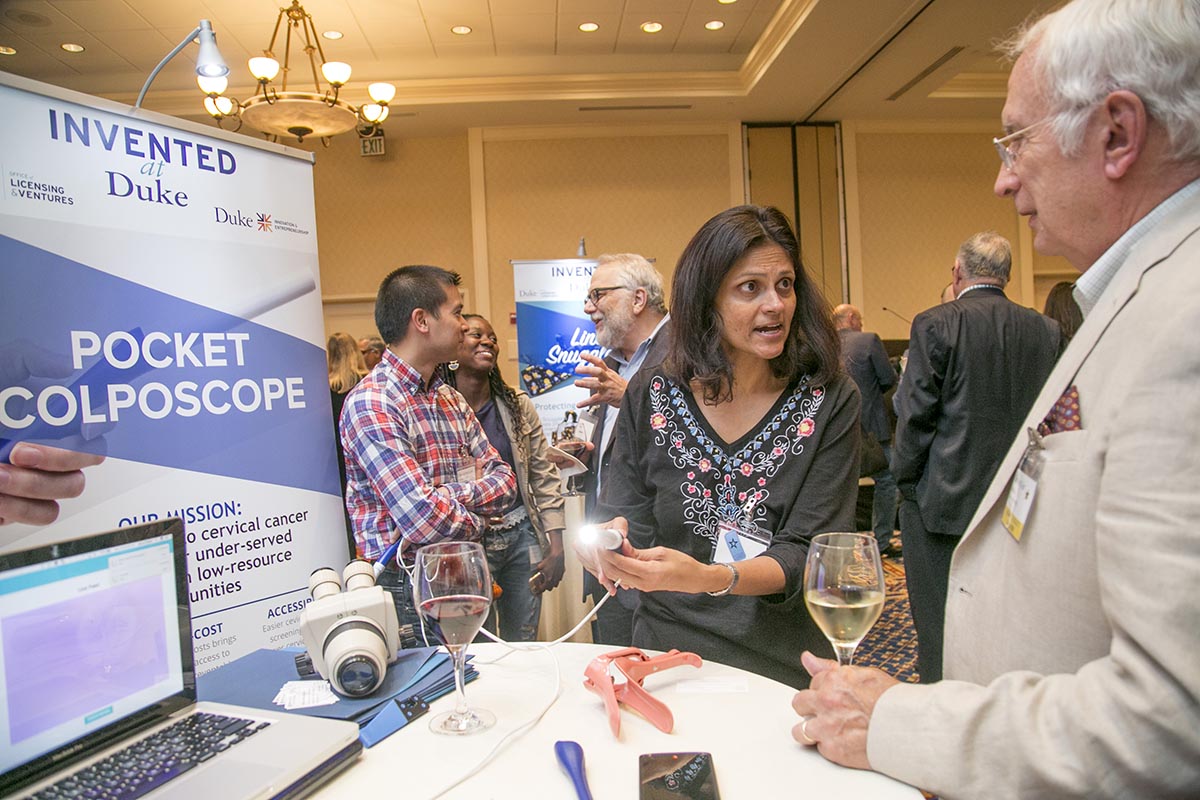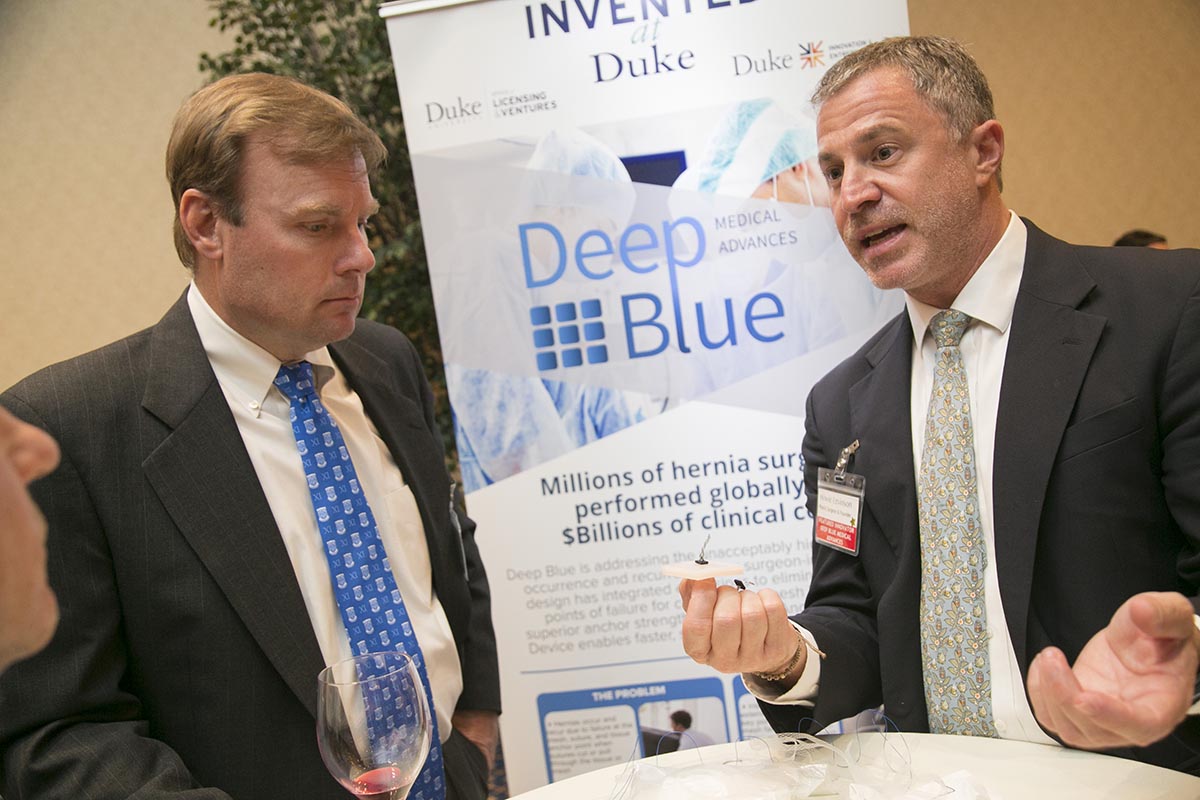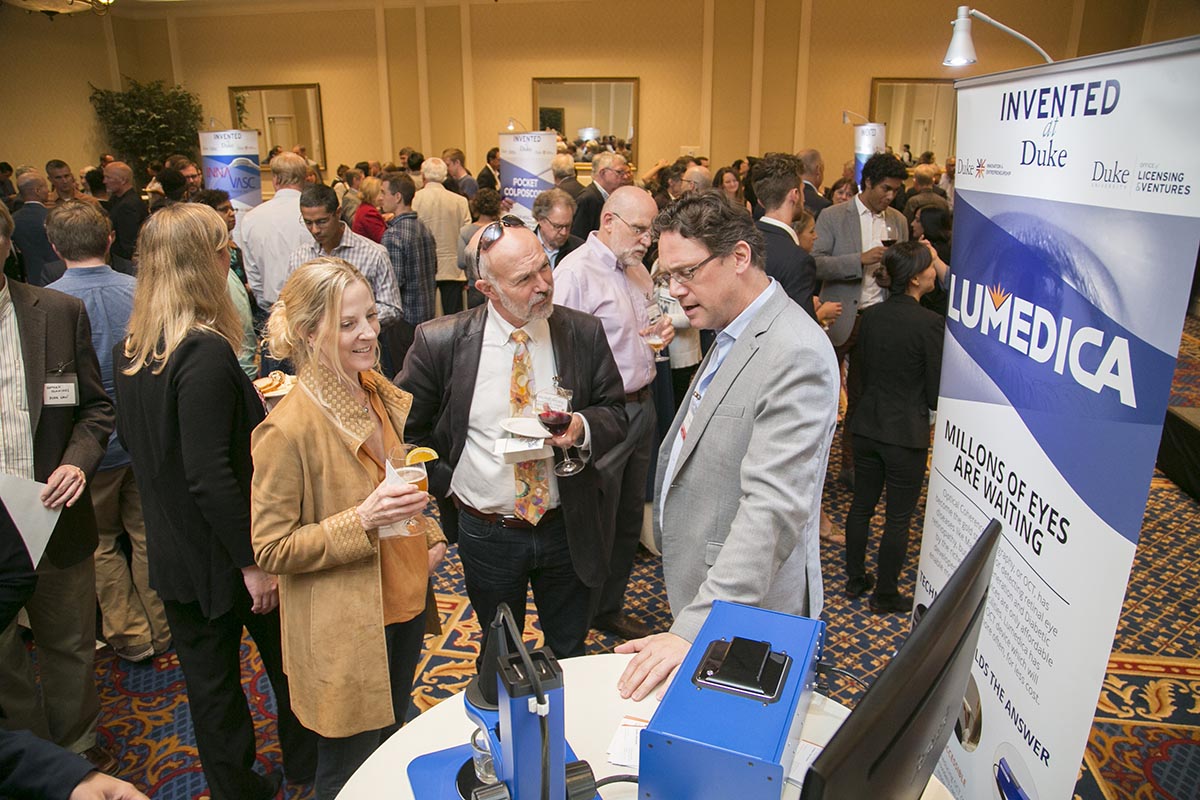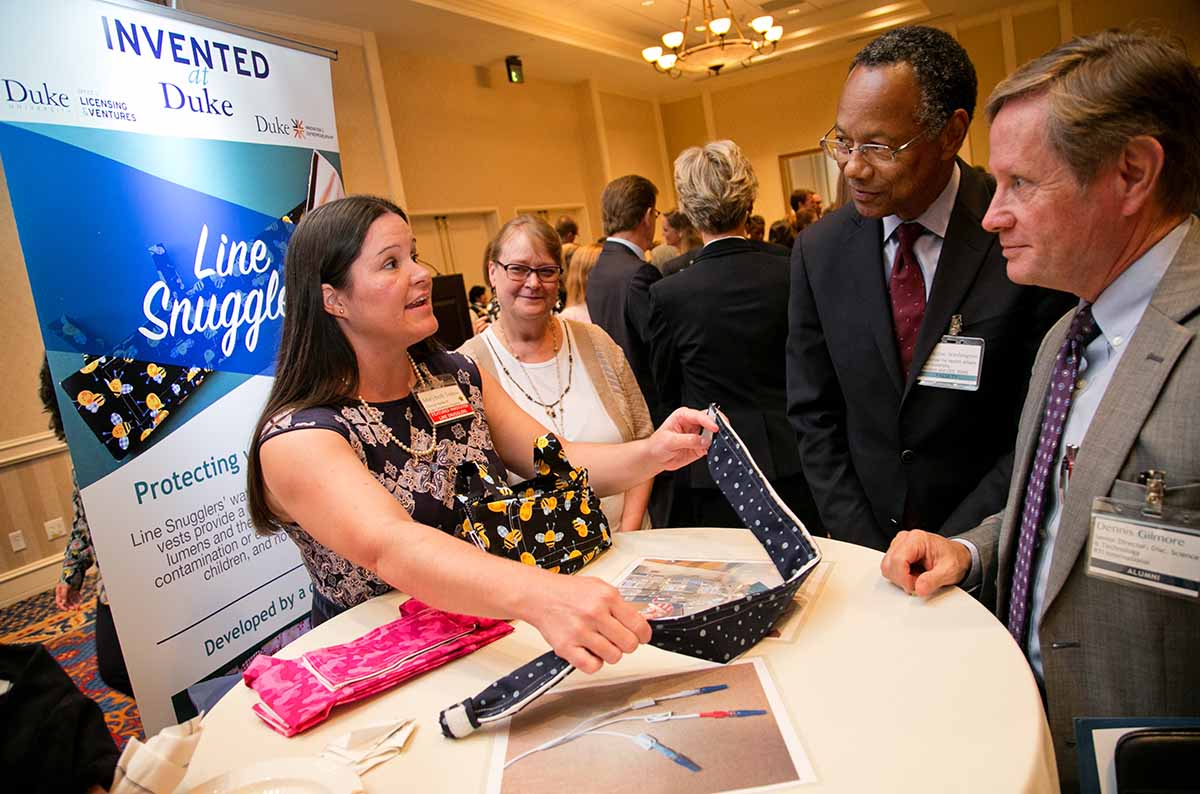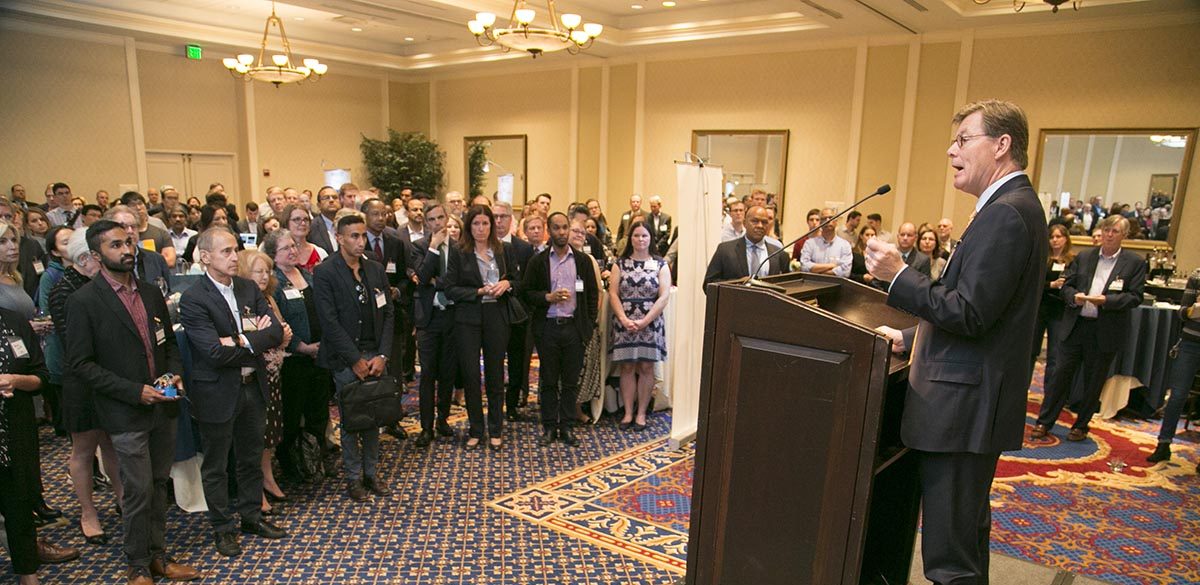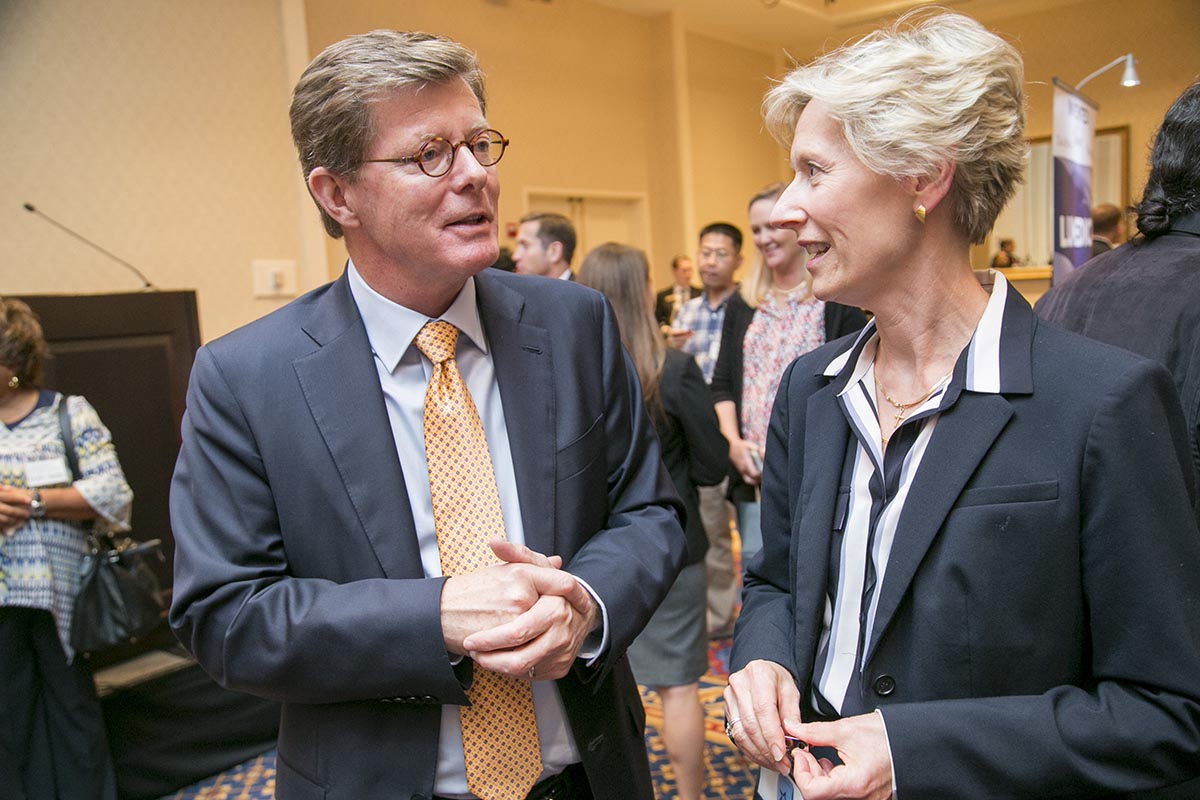Duke Celebrates Innovation & Entrepreneurship at 1st Annual “Invented at Duke”
“Commercialization turns discovery into invention, enabling Duke researchers to fulfill our institution’s mission of bringing knowledge to bear in service to society.” –President Price
A puncture-proof vascular graft, silicone microspheres, improved eye disease imaging, a pocket-sized colposcope, improved hernia solutions, a platform for predictive surgical complication risks, and an infant IV vest—Duke’s cutting-edge innovations were out in force at Monday’s Invented at Duke Celebration.
The event honored Duke faculty, staff, and students whose research has the potential to improve and save lives. Robin Rasor, the Executive Director of the Office of Translation and Commercialization (OTC), said, “The Invented at Duke celebration is an opportunity for us to showcase how the cycle of discovery to commercialization helps to translate technology into products and services that have a real impact on society.”
A focus for this first annual event was on the significant progress Duke is making to become a leader in transferring its knowledge and innovations to the worldwide community. With over 300 invention disclosures, 85 patents and 11 new startups for this past fiscal year, OTC understands that our faculty, staff and student inventors are a vital component to all areas of the innovation ecosystem.
“This is such an exciting time to be at Duke. From the interdisciplinary work of our Institutions to student collaborations and clinical research, we are thinking creatively about the world’s most intractable problems and actively finding solutions to solve them,” President Price said speaking in front of a crowd of over 300 alumni, faculty, staff, students, and members of the local community.
The event, held at the Washington Duke Inn, created an opportunity for researchers to present their innovations to members of the venture capital and business communities as well as to stimulate interdisciplinary collaboration.
OTC is making substantial progress in helping to facilitate and lead entrepreneurship and technology commercialization at Duke. Ms. Rasor said, “There is so much energy and excitement around Duke innovation right now. The success of last night’s event was evidence as to how much interest there is from our local community to engage with our researchers, increase their involvement, and develop partnerships that work for everyone.”
Check out the Featured Innovators from our event. Their innovations represent an inspiring reflection of the interdisciplinary community afforded to us here at Duke.
Featured Innovators:

InnAVasc Medical, Inc. is a medical device company founded by Duke University surgeons and scientists, which designs and develops products that are used to remove and return blood during kidney dialysis. The company’s first technology is a vascular access graft with self-sealing technology designed to reduce the potential for adverse events and device failures.
“Duke OTC was not only helpful in working through the process of protecting the company’s patents, but also in connecting us with various resources throughout Duke and the Triangle that were particularly helpful for an early stage startup.” –Joe Knight, President & CEO, InnAVasc Medical, Inc.

Lumedica was founded by an experienced team of engineers including Chief Scientist Dr. Adam Wax from the Pratt School of Engineering. Dr. Wax’s team has developed a new low-cost optical coherence tomography (OCT) scanner that could dramatically extend the impact of the imaging technology for eye health by making eye imaging more affordable, accessible and easier to use. Affordable access would enable more health care providers to conduct OCT imaging, giving patients greater, earlier access to the one test that can save their vision and improve their quality of life.
“I’ve worked with OTC on many technologies over the years. They’ve helped me develop the patent protection we needed to get our companies off the ground.” – Adam Wax, PhD, Professor of Biomedical Engineering, Pratt School of Engineering

Line Snugglers are nursing products developed by Marybeth Tetlow, a clinical nurse on the Duke Pediatric Blood and Marrow Transplant Unit. These waterproof sleeves or adjustable vests with waterproof sleeves provide a means to protect central line lumens and their connected IV tubing from contamination or entanglement in infants, small children, and now older patients as well. Line Snugglers unique design keeps lines bundled and organized for easy movement and shields the central lines and all IV connection points from body fluids and other debris, such as glitter, playdoh, glue, or paint. Additionally, this innovation decreases the anxiety of patients, families, and nurses, as children actively go through intense treatment for life-threatening illnesses.
“The Duke OTC team has helped me in protecting my ideas’ design and in the early stages of a start-up, something we will continue to work on so that soon patients, families, and nurses everywhere can benefit from my invention!” –Marybeth Tetlow, inventor of Line Snugglers

POCkeT Colposcope is a highly portable, cervical cancer screening solution to be used at the community-level setting. The technology was developed by Dr. Nimmi Ramanujam and her team at Duke University’s Global Women’s Health Technologies Center and has been evaluated clinically in Tanzania, Peru, Kenya, Zambia, and the U.S. Cervical cancer affects the lives of 500,000 women worldwide each year and results in more than 270,000 deaths. The POCkeT Colposcope brings a small, easily cleaned, and highly usable device to many low to middle-income countries.
https://www.pocketcolposcope.com/
“Duke OTC has been an active and engaged partner in helping our team pursue commercialization pathways for the POCkeT Colposcope. Not only does this office provide services for technology transfer but also supports grant proposals and student activities to move this technology forward.” –Nimmi Ramanujam, PhD, Professor of Biomedical Engineering, Pratt School of Engineering

Encapsio was born out of a Duke lab by PhD Wyatt Shields. The company is developing a system of manufacturing premium silicone microspheres for the encapsulation, protection, and controlled delivery of active ingredients in product formulations. Fuqua MBA students Nick Kirby and Wes Day sought out Shields’ technology for a start-up idea when they saw the potential for a product that is cost effective, scalable, and easily brought to market. With the ability to encapsulate and deliver a variety of compounds, these spheres offer a broad range of applications—such as inks, paints, pesticides, drugs, etc. Currently, the focus is on topical applications for skin care starting with a retinol-encapsulated microsphere that will be supplied to cosmetic brands and cosmetic ingredient distributors.
“OTC has supported our startup from the very beginning. It was OTC’s Rob Hallford who initially connected Wes and me to Wyatt long before we became a company. Also, OTC has assisted with writing grants, fundraising, IP strategy, and facilitating introductions to key contacts within their vast network.”–Nick Kirby, Encapsio CFO

Deep Blue Medical Advances, Inc. is a start-up company founded in 2014 by a Duke plastic surgeon, Howard Levinson, MD. The company has been advancing a hernia mesh with enhanced anchoring strength to resist wounds from gapping and bursting open, as well as a suture anchoring device to overcome large suture knots associated with wide sutures. In separate efforts, Dr. Levinson is working on additional translational projects including an anti-biofouling Foley catheter, a non-invasive light imaging technology to diagnose skin disorders, and tissue-engineered skin that resists contraction.
“I have worked closely with Duke OTC to protect intellectual property, navigate entrepreneurial activities, and to raise non-dilutive grant funds to advance ideas. Duke OTC’s support has been critical to our success and is a clear distinguishing factor between Duke University and its existing peer institutes.” –Howard Levinson, MD, Associate Professor of Surgery, School of Medicine

kēlaHealth is a software-as-service health informatics company founded by a team of surgeons, statisticians, and engineers that uses machine learning for predicting complications during surgery. Through rigorous data analysis, kēlaHealth delivers precision medicine by leveraging data from millions of patients, standardizing surgeon variability, and addressing administrative and regulatory needs for quality compliance in surgical care.
“Duke OTC did a wonderful job of engaging our team very early in the process even before invention disclosure so that we could both understand how to license our technology up front. They also provided us very helpful advice on the SBIR/STTR process that positioned us for a successful STTR in conjunction with kēlaHealth.” –Erich Huang, MD, PhD, Assistant Professor in Biostatistics and Bioinformatics, School of Medicine







